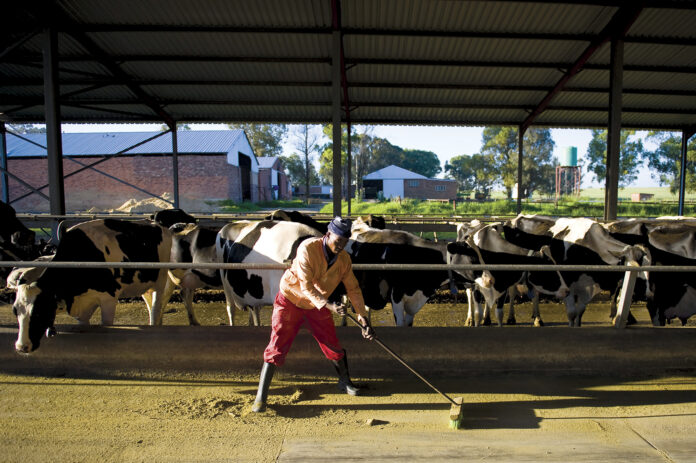One of the significant developments in the land reform programme this year was the signing into law of the Communal Property Associations Amendment Bill by President
Cyril Ramaphosa.
The signing of the bill into law amended the Communal Property Associations Act of 1996, in the backdrop of disturbing revelations that more than 1 300 communal property associations (CPAs) responsible for running farms and properties restituted to communities as part of the land reform programme were in shambles and not complying with the law.
The collapse of the CPAs resulted in the failure of land restitution farms.
The collapse of the CPAs, which are in the main made up of ordinary citizens who are descendants of generations of land dispossession victims who were denied access to basic academic education, has resulted in the failure of land restitution farms, plunging beneficiaries into poverty.
CPAs are structures formed by land claimant communities as part of the Communal Property Association Act 28 of 1996 to enable communities to manage properties awarded to them as part of land claims.
In its annual report for the 2023/24 financial year submitted before parliament last month, the Commission on Restitution of Land Rights noted that from April 2023 to March 2024 financial year, there were 1 742 CPAs nationally.
“During the 2022/23 reporting period, 75% of the registered CPAs were non-compliant with the provisions of Section 11 and Regulation 8 of the Act; even though some are functional, during this period, 82% are non-compliant,” the commission revealed in its annual report.
Although some have disputed this glaring fact, the dysfunction of the CPAs is no doubt a legacy of the dispossession and colonial project, which denied indigenous people the right to actively participate in the land economy.
Communities that were reduced to fruit pickers and denied access to the rigours of running commercial farms cannot suddenly be expected to run education.
It is also a rotten legacy of the last 30 years, where communities that were restituted but were not given the necessary financial and skills support to run their farms and turn them into successful entities.
How did the ANC government expect such communities to suddenly garner the skills to run multimillion-rand commercial farm operations when, for more than a century, they had been denied access to even basic education?
Although the issue of the CPAs has been most pressing, there are even more pressing issues that underline the persisting challenges around the contentious land reform programme.
Some of these cases made their way into the pages of this very publication. These included cases of a family that was denied access to its home by a racist white farmer using his
financial muscle to keep them out.
It also included the case of a family that was saved from unfair, illegal eviction by an equally racist, rich family from a home they have all lived in for over 45 years.
Land rights activists and organisations note that more than 1-million people were evicted from white
occupied farms since 1994.
Going through the facts and arguments in the cases involving land always gives the
impression SA was still stuck in the 1960s, where indigenous people’s rights to the land of their birth were non-existent.
There are still many cases of arbitrary evictions, beatings and other human rights violations on farms that should not be happening in this day and age.
The crux of the cases points to a callous violation of tenure and basic human rights for long-term farm residents.
The Department of Rural Development and Land Reform has recently embarked on a public relations exercise to convince the electorate it has made significant progress with regard to land claims.
This includes colourful newspaper advertisements (strangely not run in this publication) announcing how much was spent, how many people benefitted from the programmes and how much land has been restituted to Africans.
But perhaps what the department fails to outline in its ads is just how many indigenous people and communities that are victims and descendants of those dispossessed of land continue to suffer the effects of these crimes to this day.
Nothing better will benefit land dispossession victims than seeing the signing of the Communal Property Associations Amendment Bill into law, translate into action and ensure that communities are saved from the clutches of hyenas who seek to benefit from land claims and reform projects.



